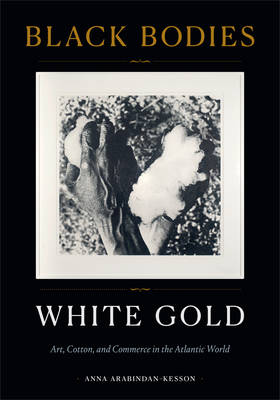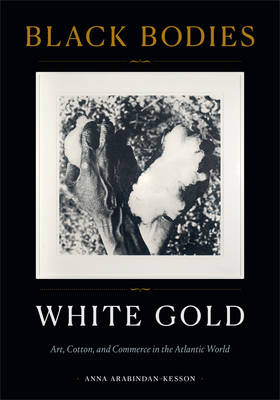
- Afhalen na 1 uur in een winkel met voorraad
- Gratis thuislevering in België vanaf € 30
- Ruim aanbod met 7 miljoen producten
- Afhalen na 1 uur in een winkel met voorraad
- Gratis thuislevering in België vanaf € 30
- Ruim aanbod met 7 miljoen producten
Zoeken
Black Bodies, White Gold
Art, Cotton, and Commerce in the Atlantic World
Anna Arabindan-Kesson
Paperback | Engels
€ 35,45
+ 70 punten
Uitvoering
Omschrijving
In Black Bodies, White Gold Anna Arabindan-Kesson uses cotton, a commodity central to the slave trade and colonialism, as a focus for new interpretations of the way art, commerce, and colonialism were intertwined in the nineteenth-century Atlantic world. In doing so, Arabindan-Kesson models an art historical approach that makes the histories of the Black diaspora central to nineteenth-century cultural production. She traces the emergence of a speculative vision that informs perceptions of Blackness in which artistic renderings of cotton--as both commodity and material--became inexorably tied to the monetary value of Black bodies. From the production and representation of "negro cloth"--the textile worn by enslaved plantation workers--to depictions of Black sharecroppers in photographs and paintings, Arabindan-Kesson demonstrates that visuality was the mechanism through which Blackness and cotton became equated as resources for extraction. In addition to interrogating the work of nineteenth-century artists, she engages with contemporary artists such as Hank Willis Thomas, Lubaina Himid, and Yinka Shonibare CBE RA, who contend with the commercial and imperial processes shaping constructions of Blackness and meanings of labor.
Specificaties
Betrokkenen
- Auteur(s):
- Uitgeverij:
Inhoud
- Aantal bladzijden:
- 320
- Taal:
- Engels
Eigenschappen
- Productcode (EAN):
- 9781478014065
- Verschijningsdatum:
- 14/05/2021
- Uitvoering:
- Paperback
- Formaat:
- Trade paperback (VS)
- Afmetingen:
- 175 mm x 251 mm
- Gewicht:
- 839 g

Alleen bij Standaard Boekhandel
+ 70 punten op je klantenkaart van Standaard Boekhandel
Beoordelingen
We publiceren alleen reviews die voldoen aan de voorwaarden voor reviews. Bekijk onze voorwaarden voor reviews.








